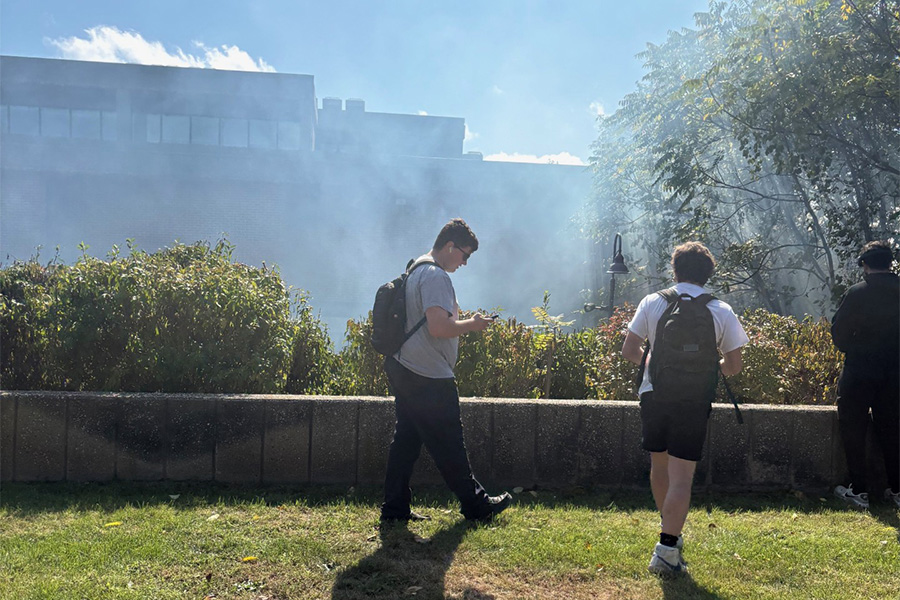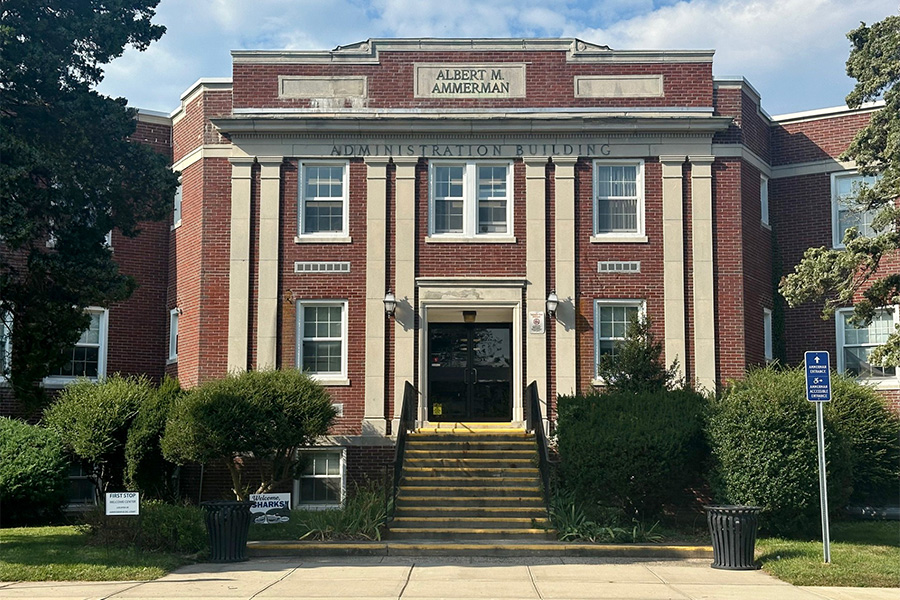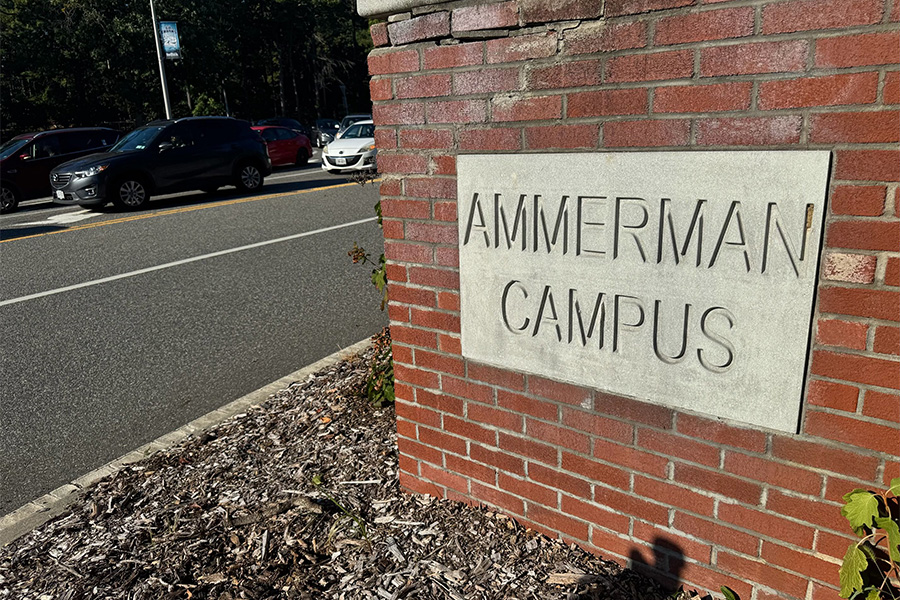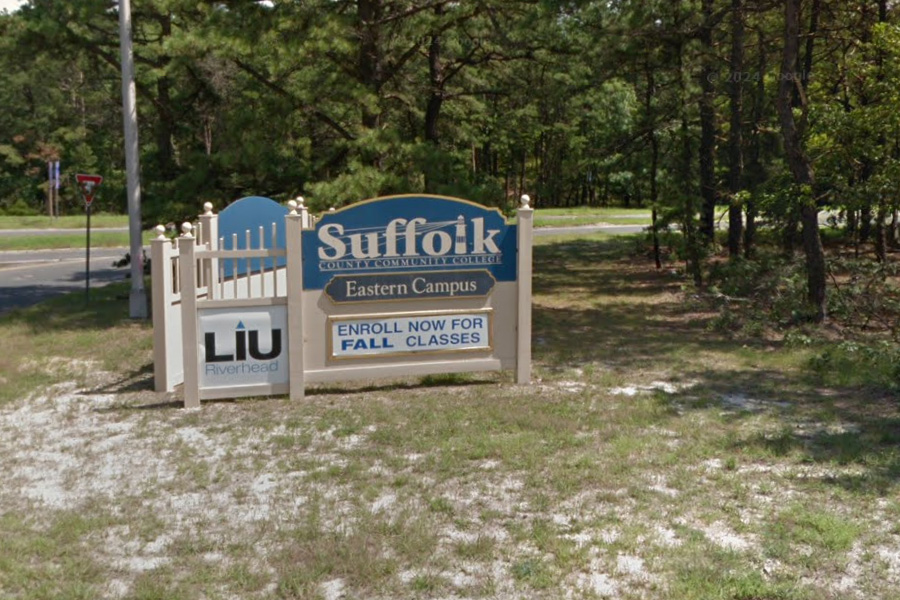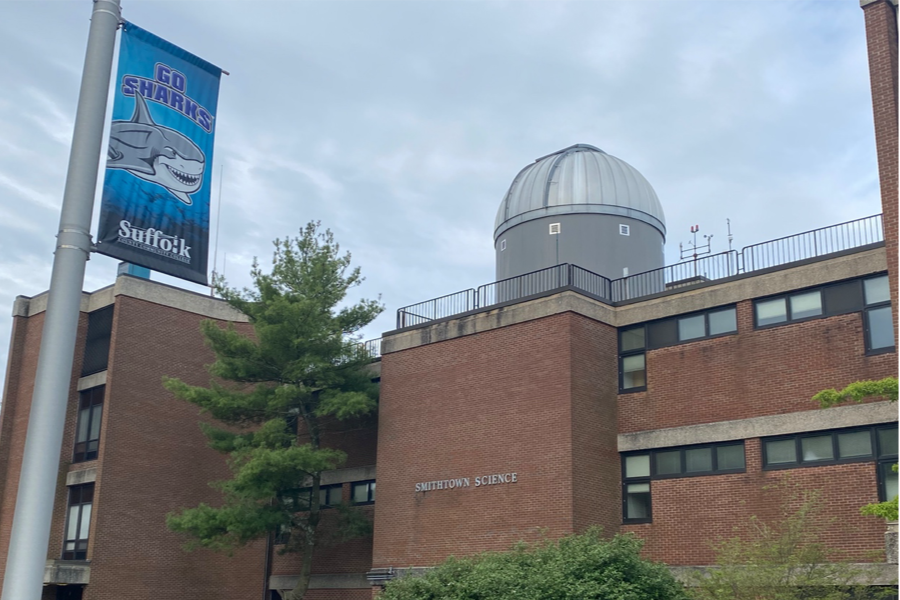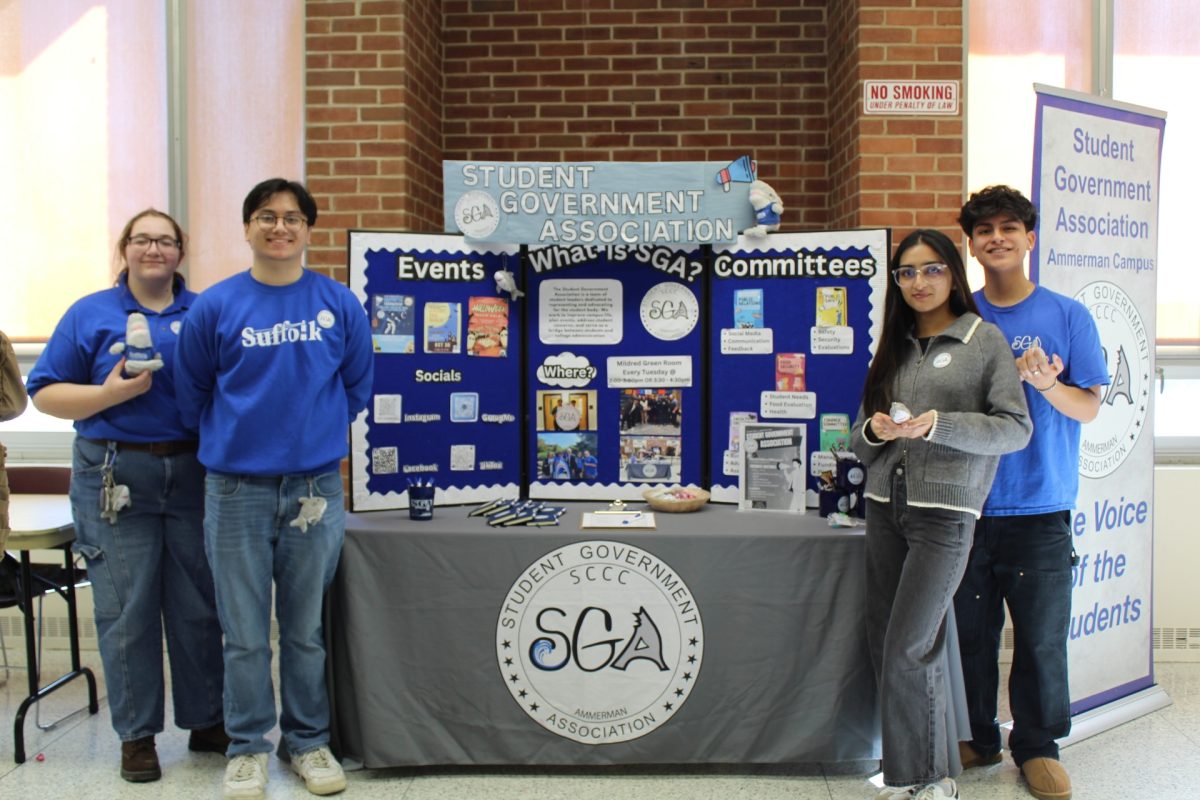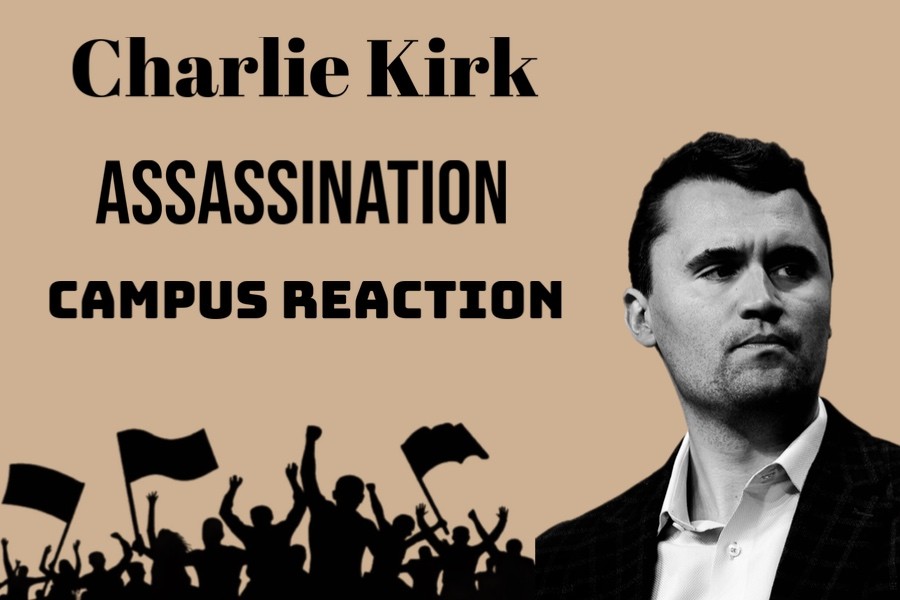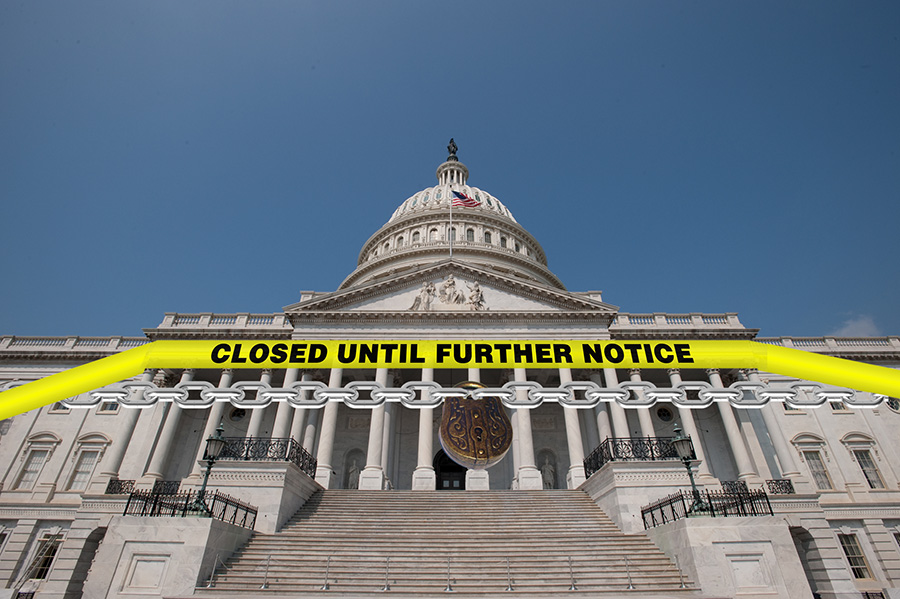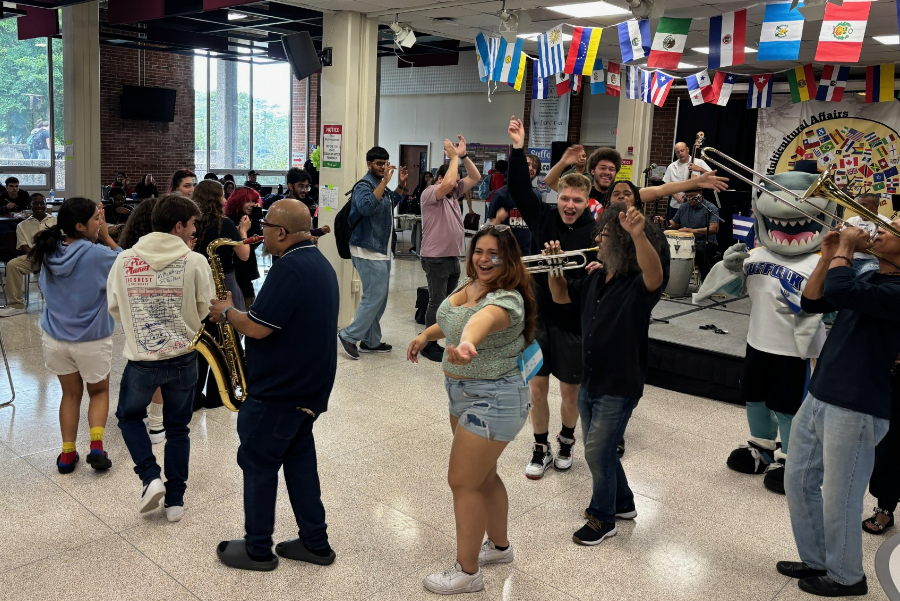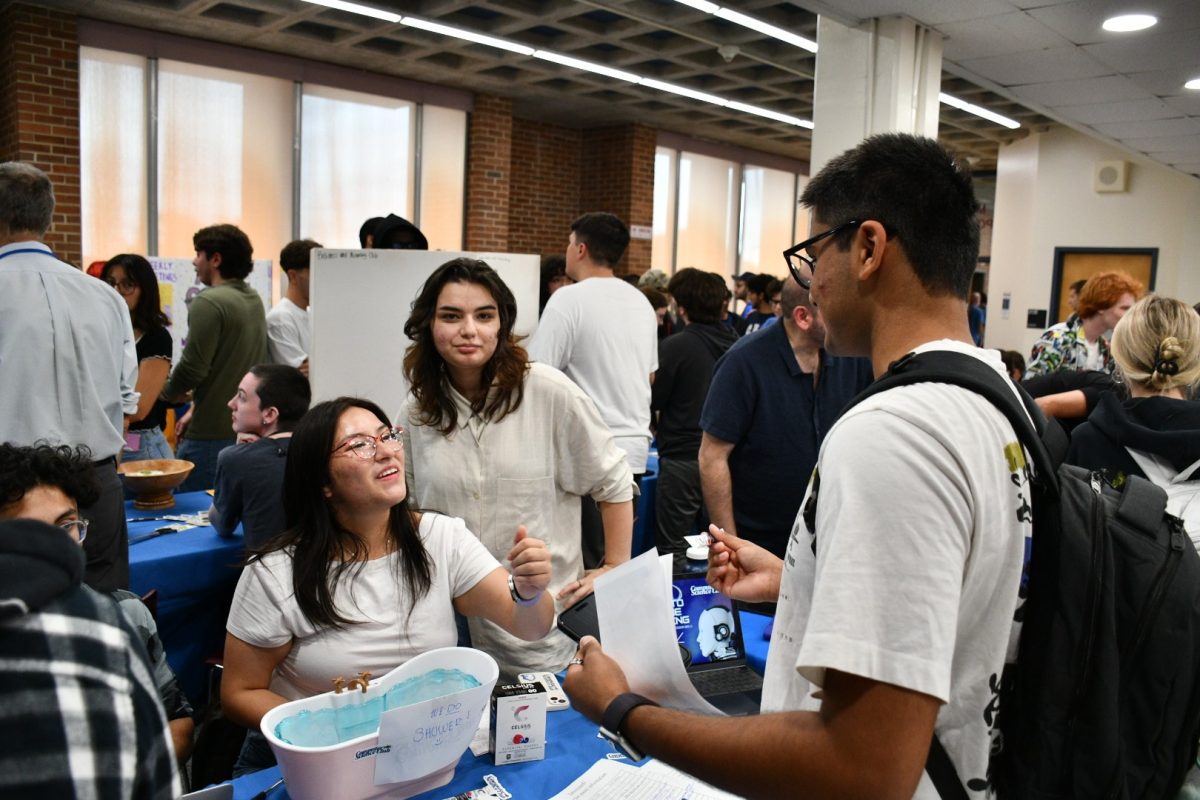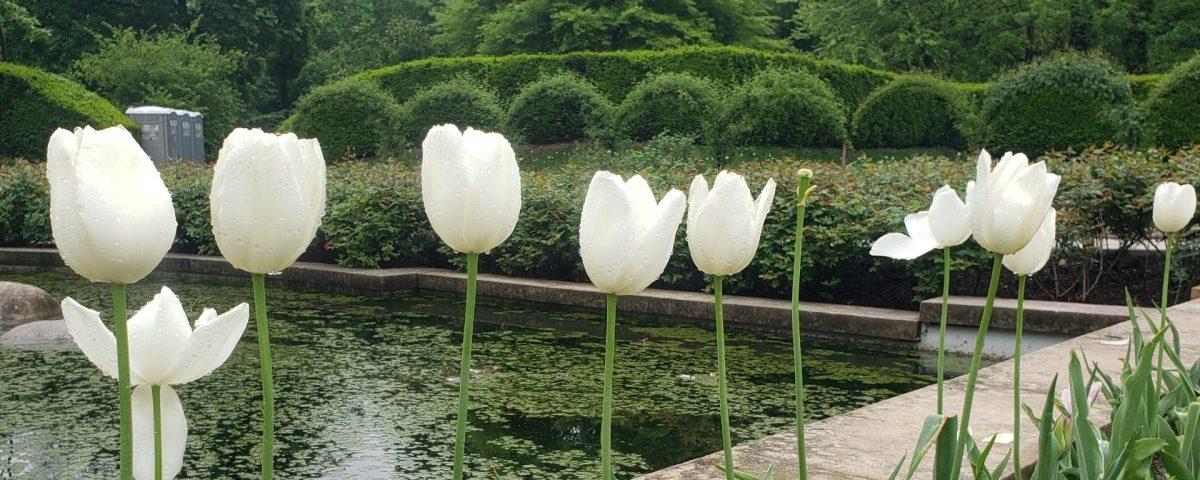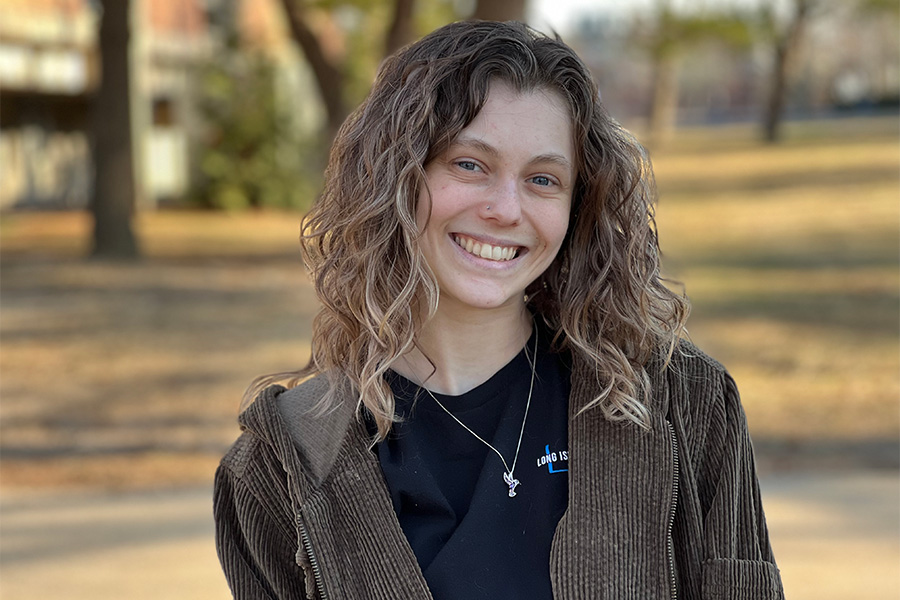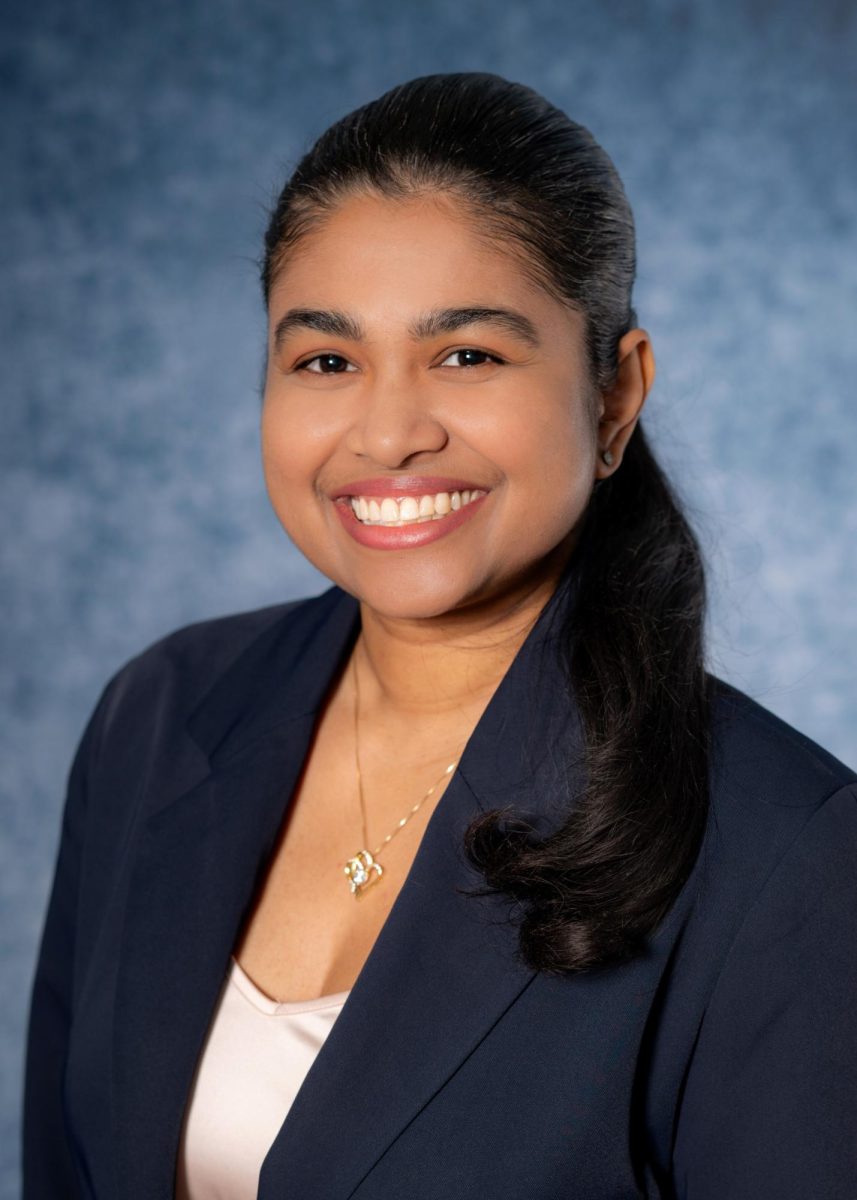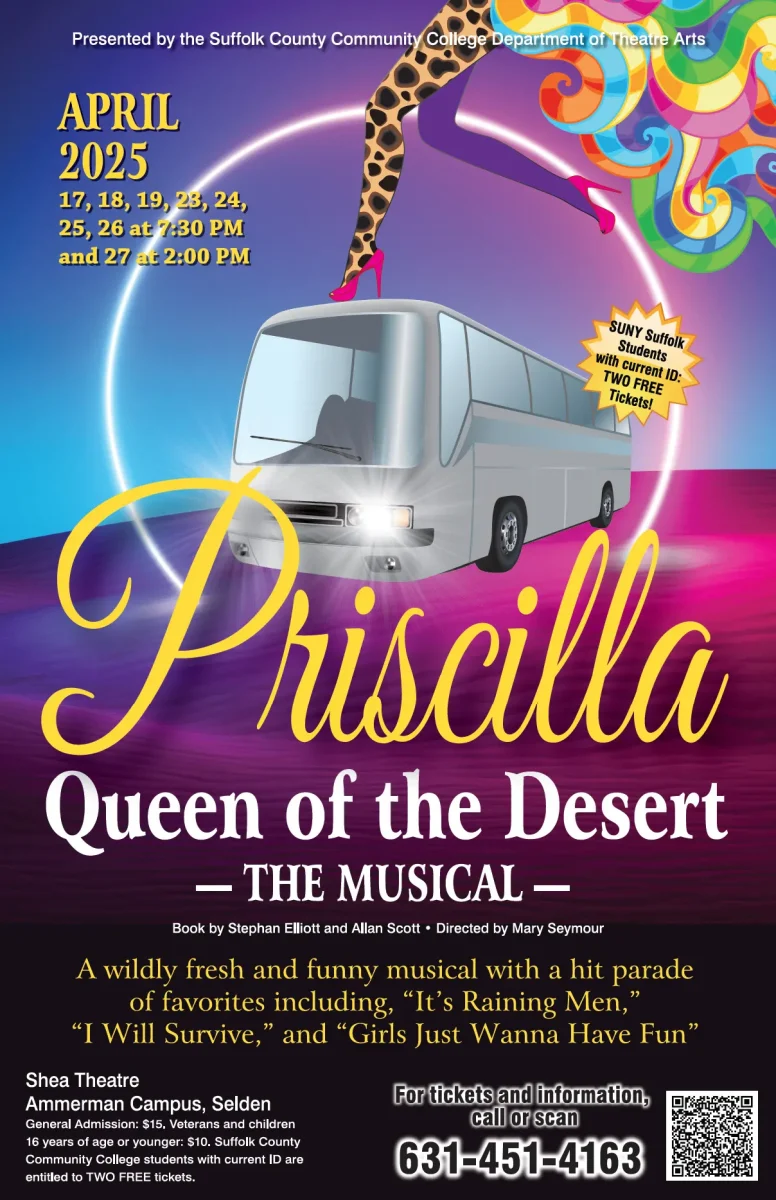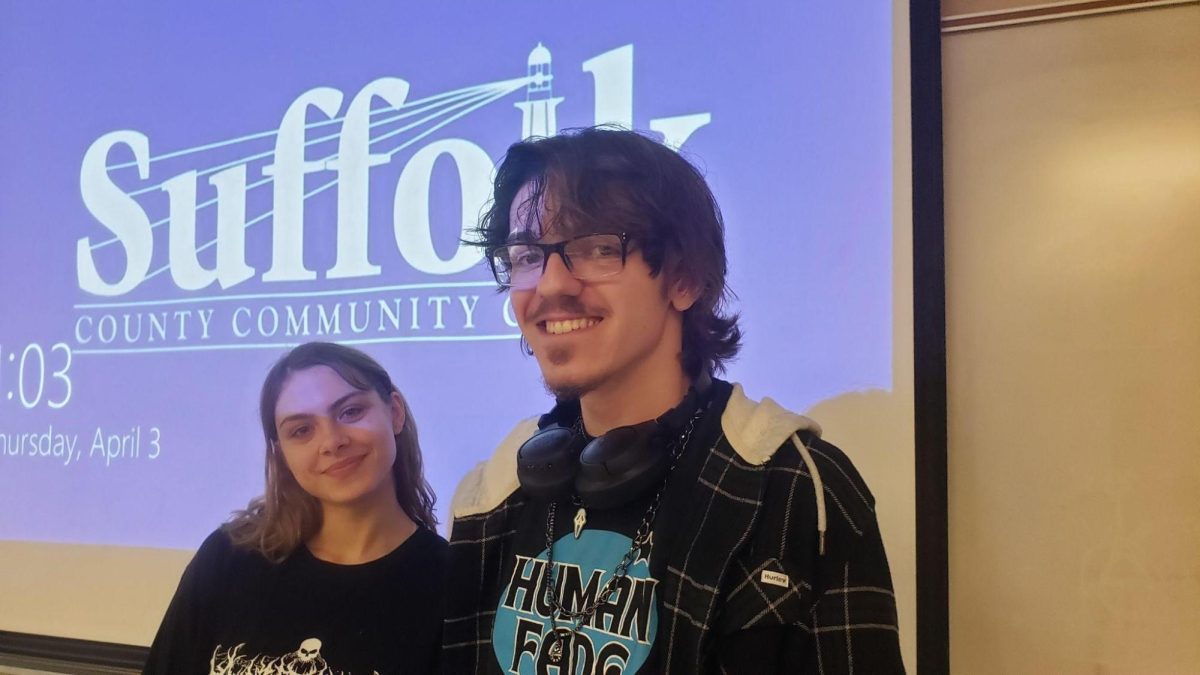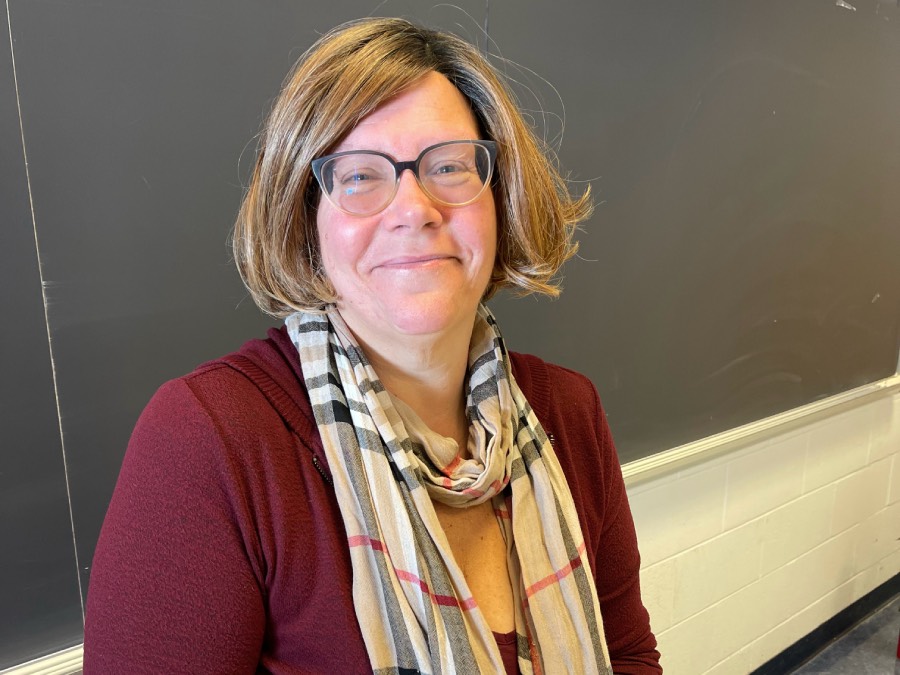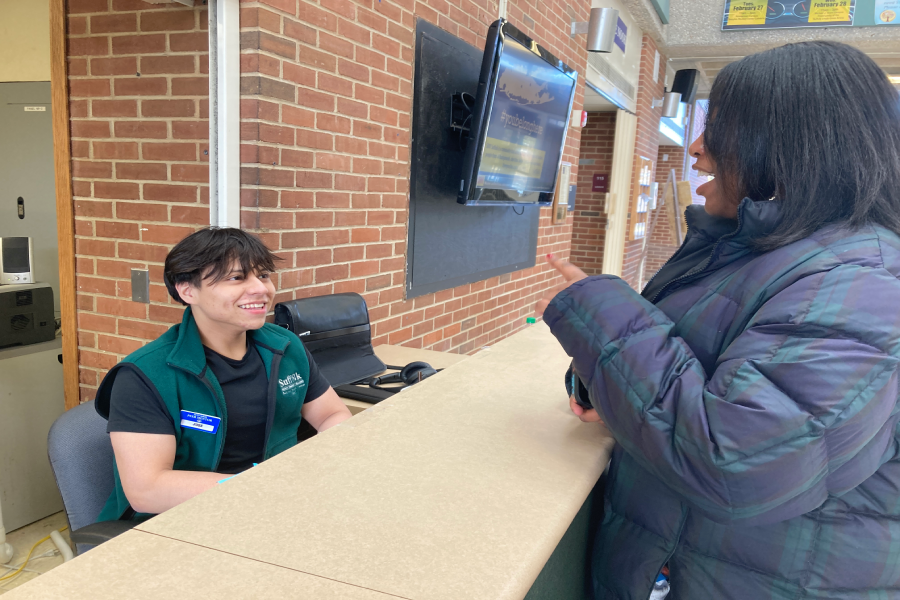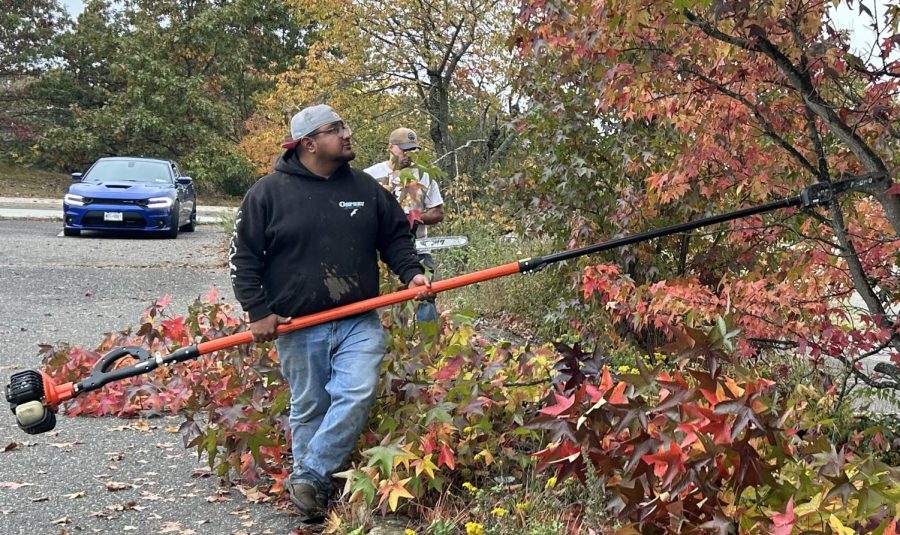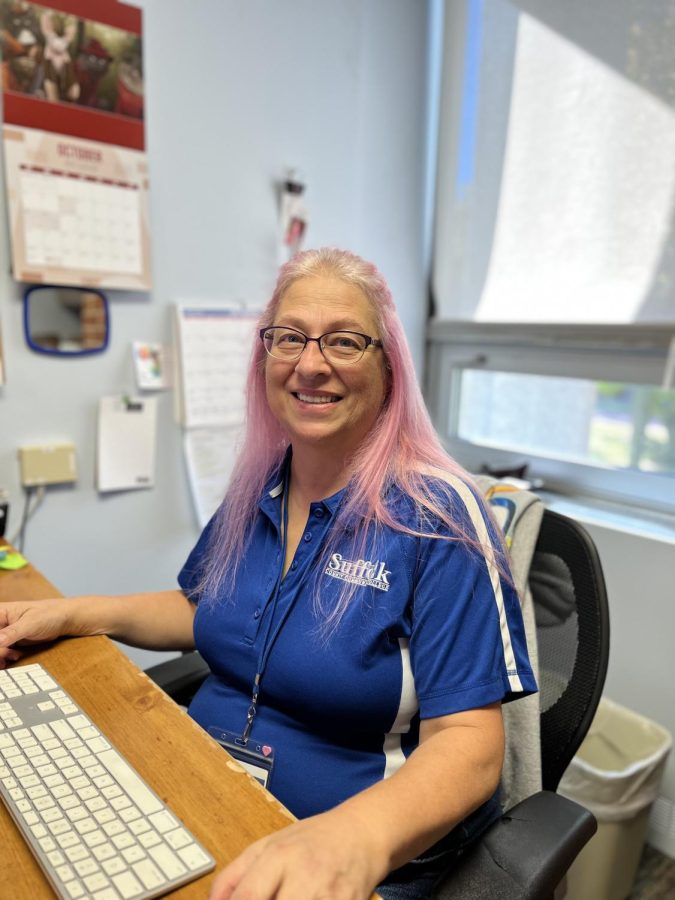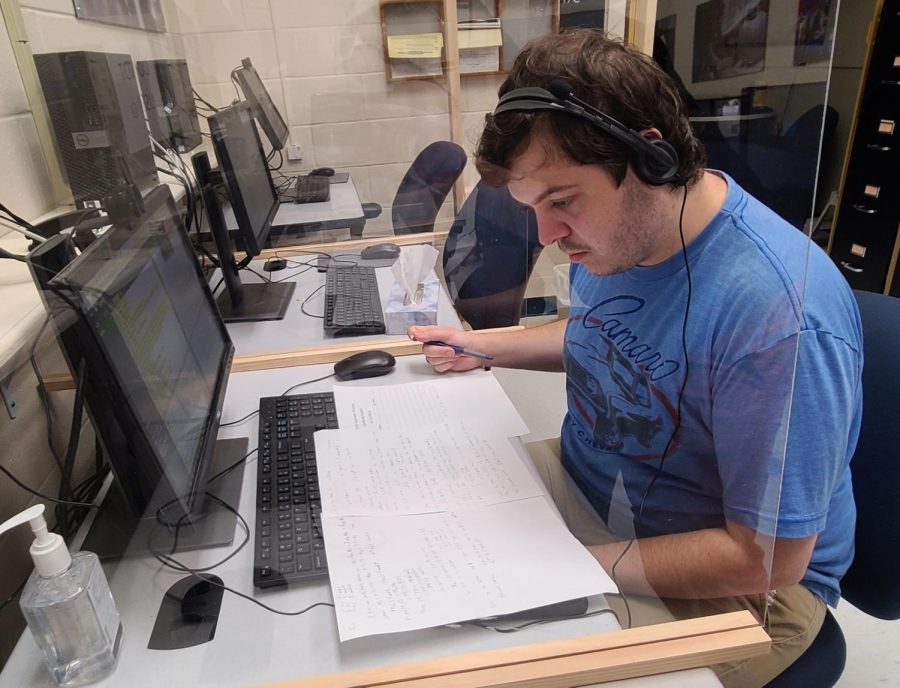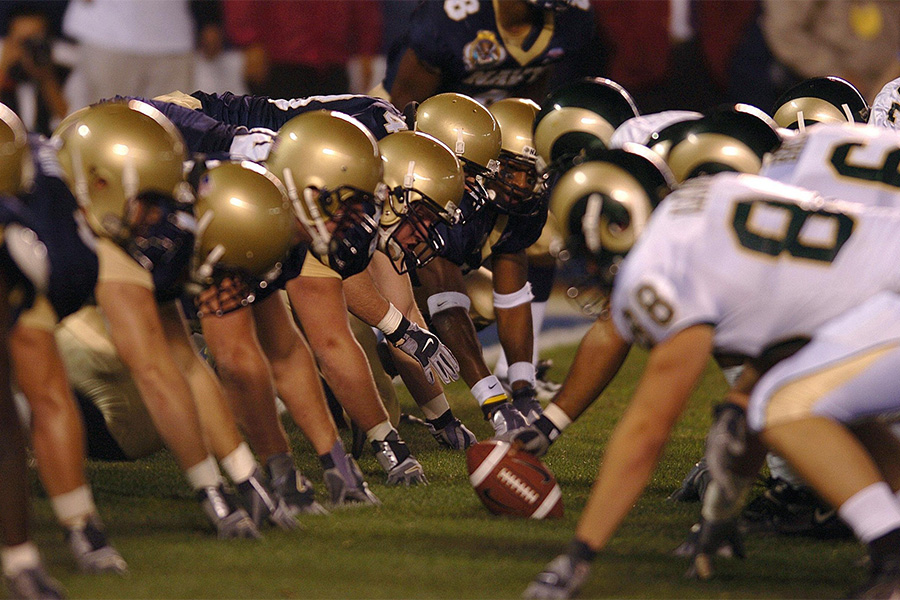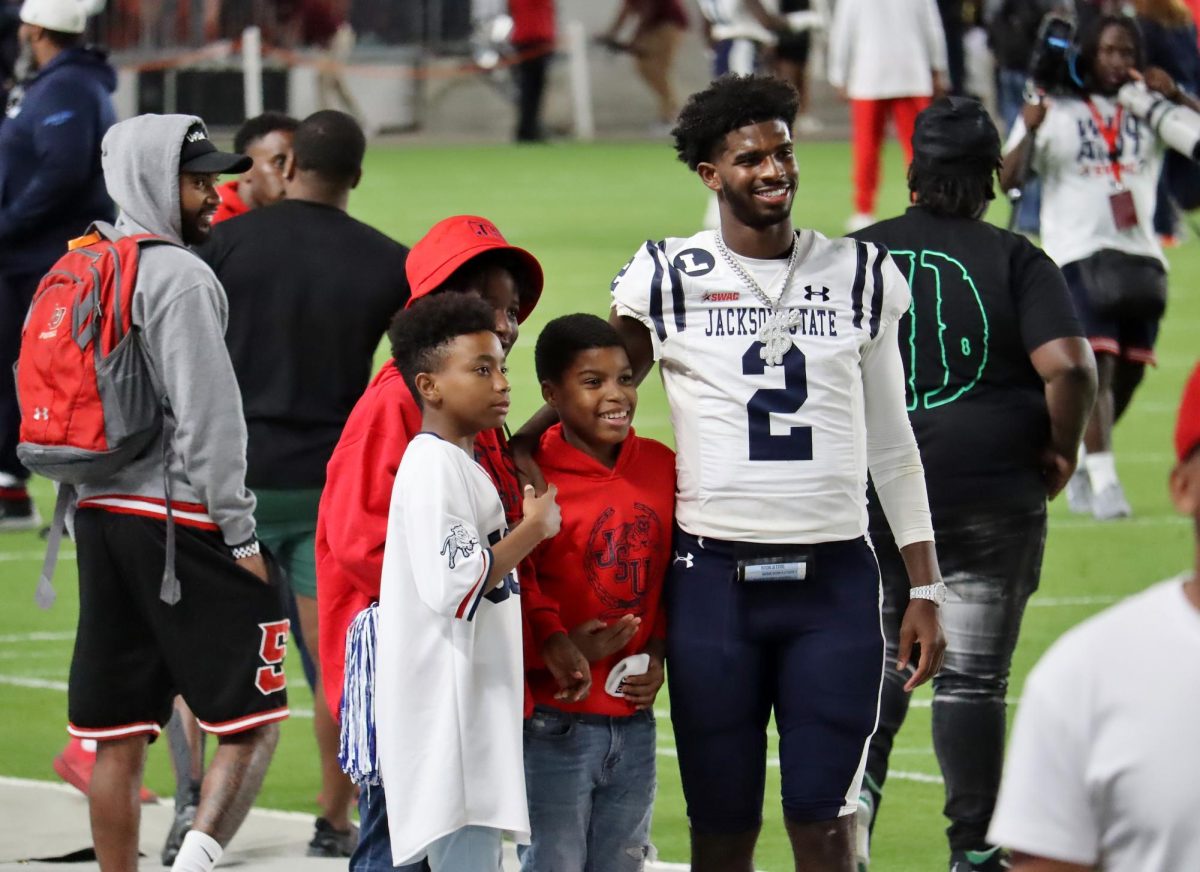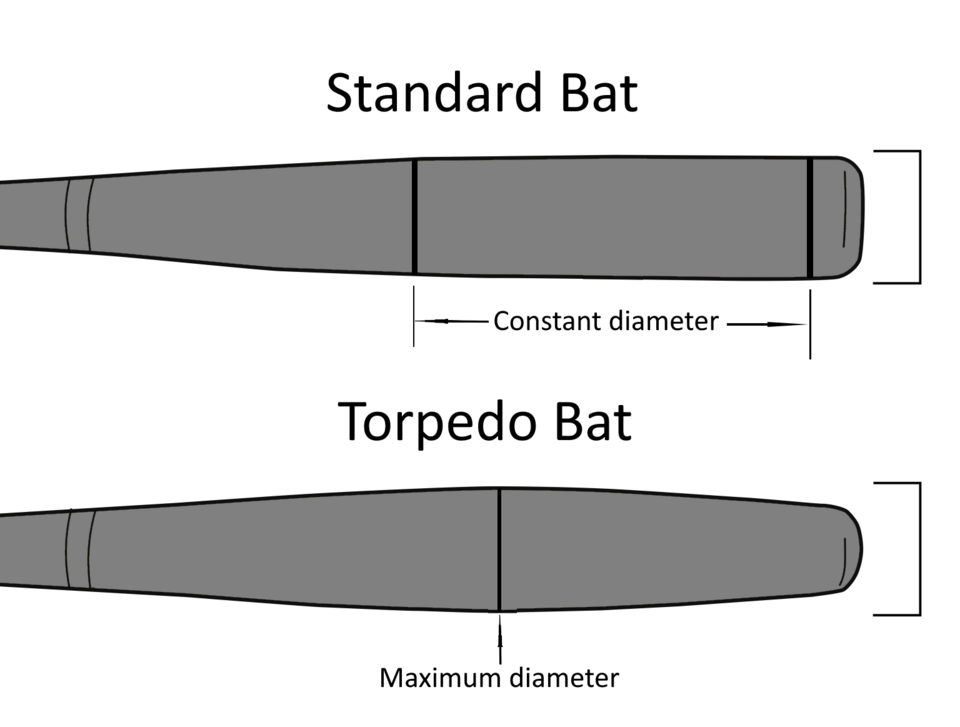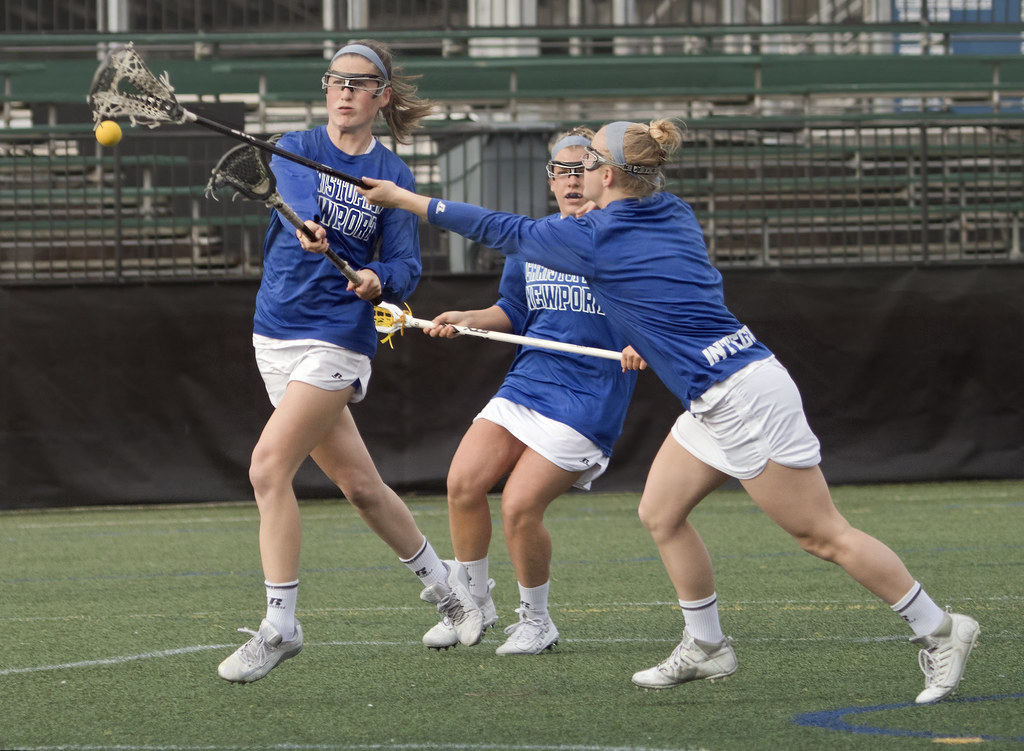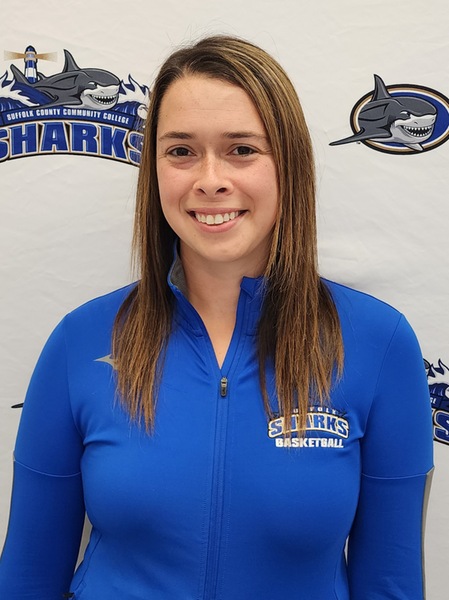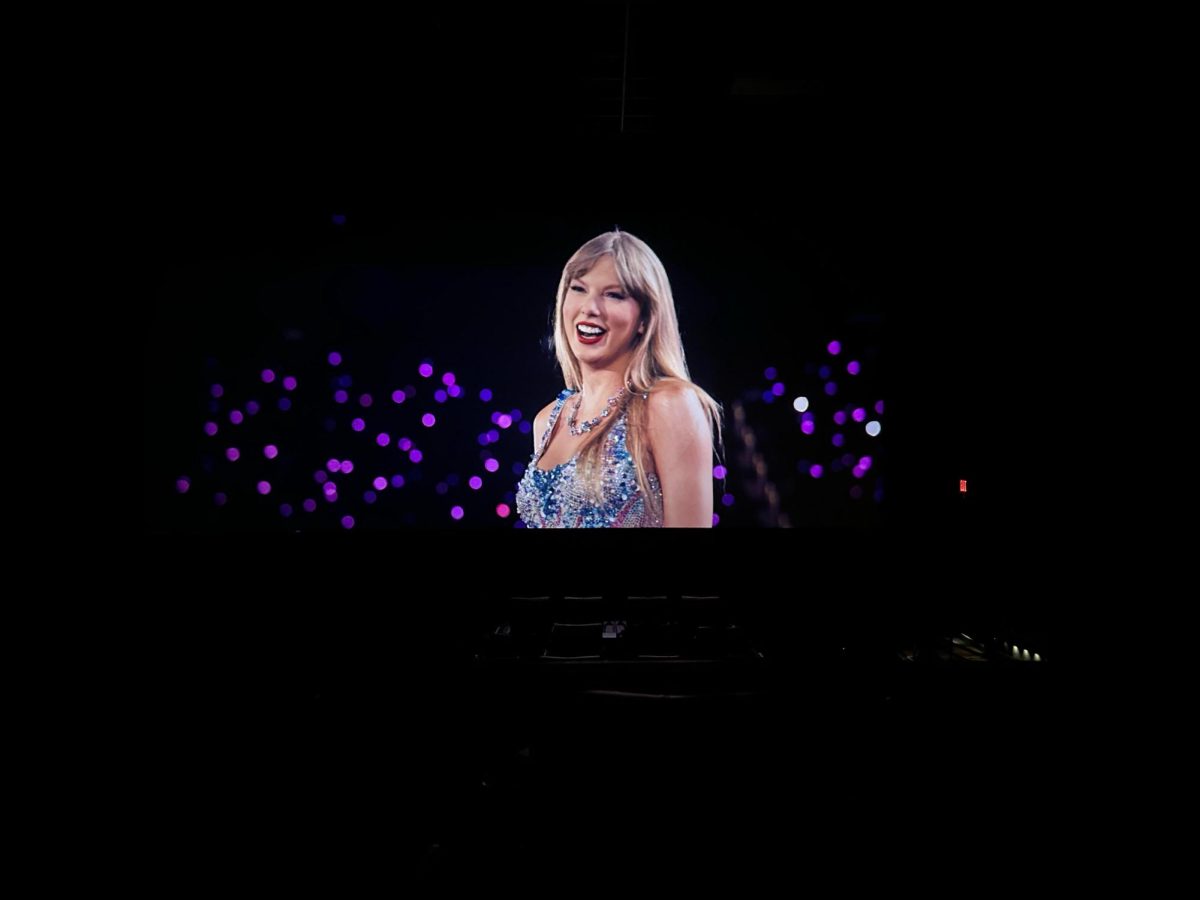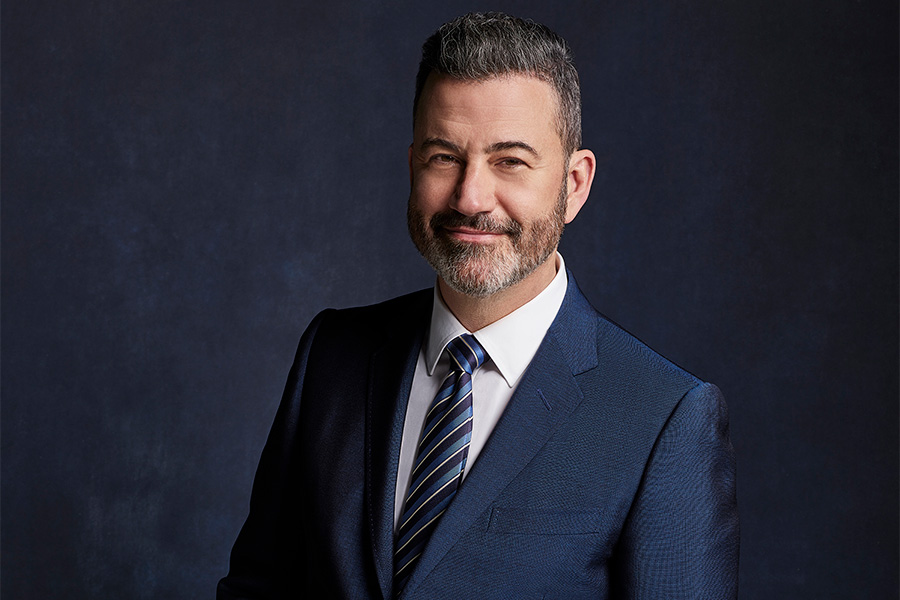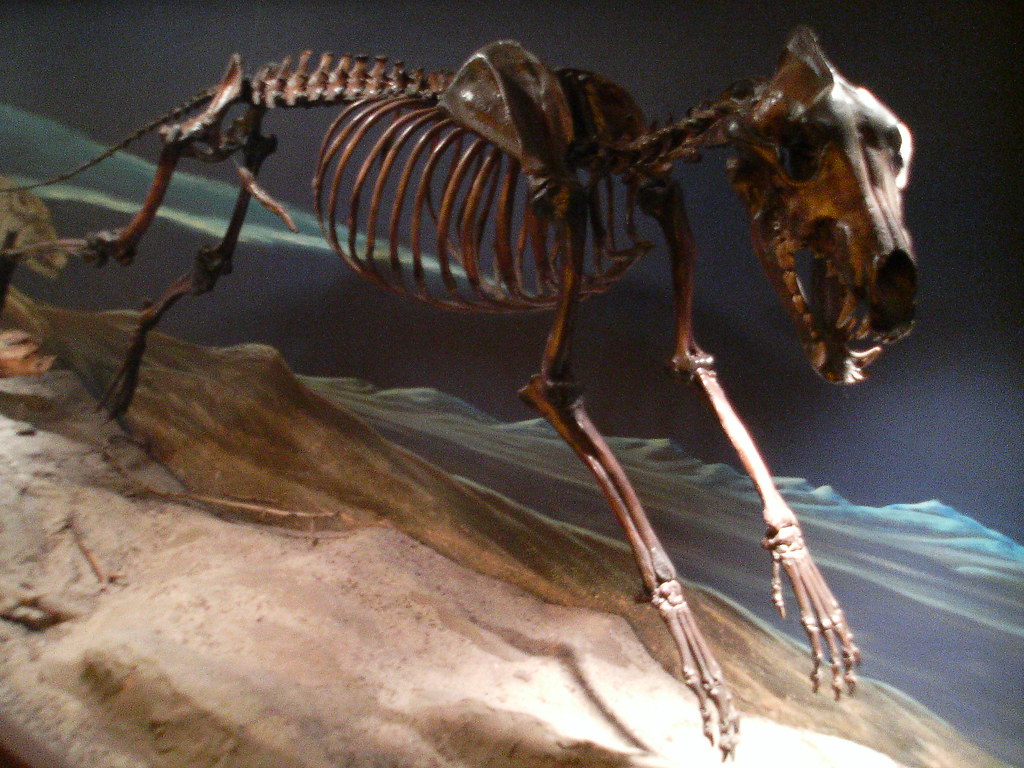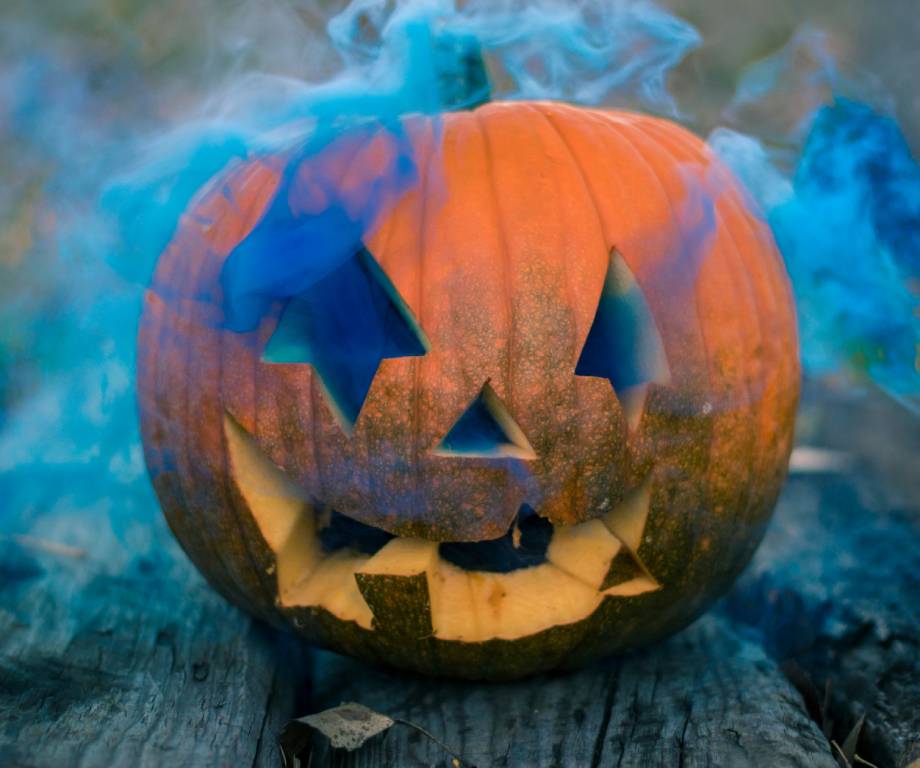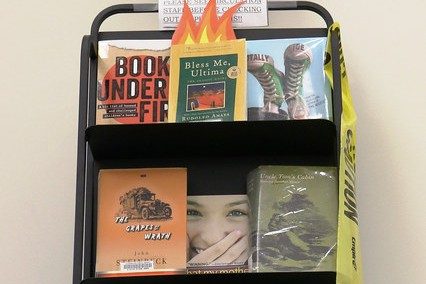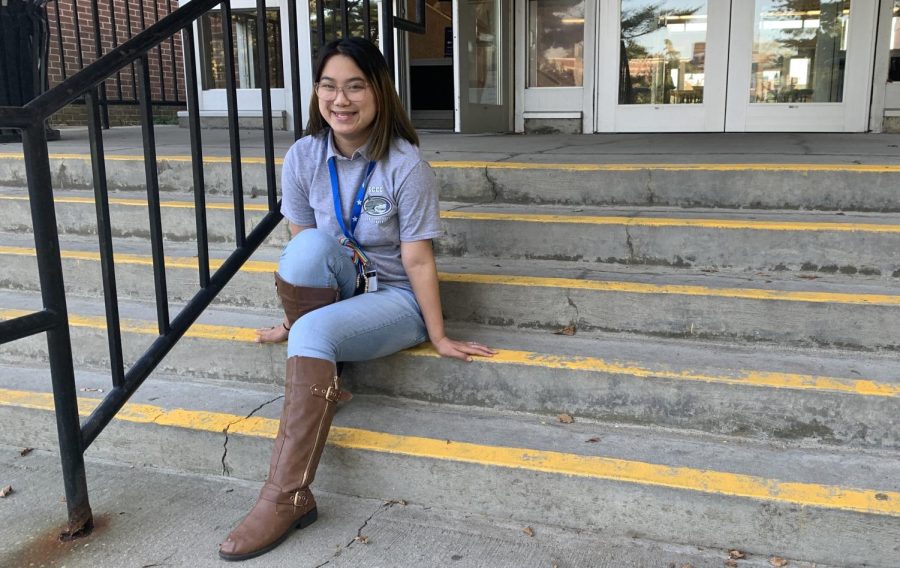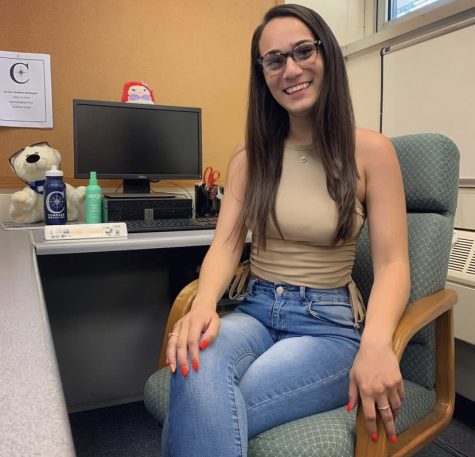A Year After Re-Opening Post COVID-19, Student Life on the Ammerman Campus Blooms
Student Executive for the Campus Activities Board Remy Fitzgerald sits on the staircase leading to the Babylon Student Center on Oct. 11, 2022.
October 24, 2022
When the COVID-19 pandemic began in March 2020, it was difficult for many students and faculty alike to uphold a sense of community.
A year since the Ammerman campus reopened after being forced to close its doors due to the global health crisis, the increased participation of students in campus activities and social and academic clubs this semester has helped to begin to bring student life on the Ammerman campus closer to a sense of pre-COVID normalcy.
“When I started here in January of 2020, the campus was much more lively,” said Remy Fitzgerald, a paralegal studies major on the Ammerman campus and the current student executive for the Ammerman campus’ Campus Activities Board, or CAB. “It was very difficult to find parking back then. The cafeteria was always buzzing. It was very different. This semester [feels] the closest to that spring 2020 experience I’ve had since,” said Fitzgerald.
Since the COVID-19 pandemic began in March 2020, Suffolk County Community College has seen a substantial decline in enrollment. As of late Sept., there were 15,816 students on all three campuses, down 6,772 students compared to the yearly count made in the fall semester of 2020, when all three campuses had a total enrollment number of 22,588 students. As of Sept. 28, there were 7,847 students enrolled in classes on the Ammerman campus.
Despite this decline, there are more students in-person on the Ammerman campus this semester compared to last, which has allowed for inactive clubs to have the opportunity to return to active statuses and has allowed for campus activities that were forced to a halt during the pandemic to return.
When the Ammerman campus closed its doors in March 2020, there were approximately 55 to 65 active clubs on campus. Currently, there are 33. While academic clubs are generally established by members of the faculty, social and special interest clubs like the Hogwarts at Suffolk and Disney clubs are mostly student-driven. Although the number of active clubs on campus has decreased substantially since the COVID-19 pandemic, the number of active clubs on campus has increased since last semester.
“We are up to 33. Pre-COVID, we were between 55 to 65. It varies every year because clubs ebb and flow and wane. Some are active, and then people graduate,” said the director of the office of Campus Activities and Leadership Development Sharon Silverstein. “We expect the first five or six weeks of school for clubs to still be finding each other. I have people coming in here every day asking about clubs and wanting to start this and that. If you were to ask me this question in another six weeks from now, that number would likely increase,” Silverstein added.
While clubs and campus activities are staples to a customary college experience, other departments, like music, athletics, and the theatre arts are just as vital in creating a sense of campus community and were also deeply impacted by the close in 2020.
According to the music department, while there are many new music majors this semester, the department has had fewer student performers in ensembles. The athletics department has seen steady participation in its team sports and intramurals but has had a decline in the number of athletes on the women’s volleyball team, forcing the department to cut the team this semester. Theatre arts has seen a decrease in the number of students enrolled in its program since the pandemic but has not had any difficulty casting its productions and remains optimistic the department will see an increase in enrollment numbers in the near future.
“Our enrollment is definitely lower than it had been pre-COVID. But it’s starting to go back up again, said Stephen Green, a professor of theatre arts on the Ammerman campus. “What I do have to say is that the students who were here last year and this year are incredibly dedicated to what they’re doing. They actually want to be here.”
Although the pandemic was a difficult time for many, students and faculty seem excited to return to campus and get closer to a customary, pre-COVID college experience. The dedication and commitment to the Ammerman campus community seem stronger than ever.
“COVID-19 really changed a lot of people’s day-to-day lives, and I don’t think that it’s unusual for a commuter college to see declining enrollment during such a tumultuous time,” said Fitzgerald. “But I am very encouraged to see many students return: some of whom took the time that we were remote during the pandemic for themselves and their families. To see people returning to campus better prepared to succeed. After the time away, I think this is paramount [to] recognizing the strength of the college community,” they added.
